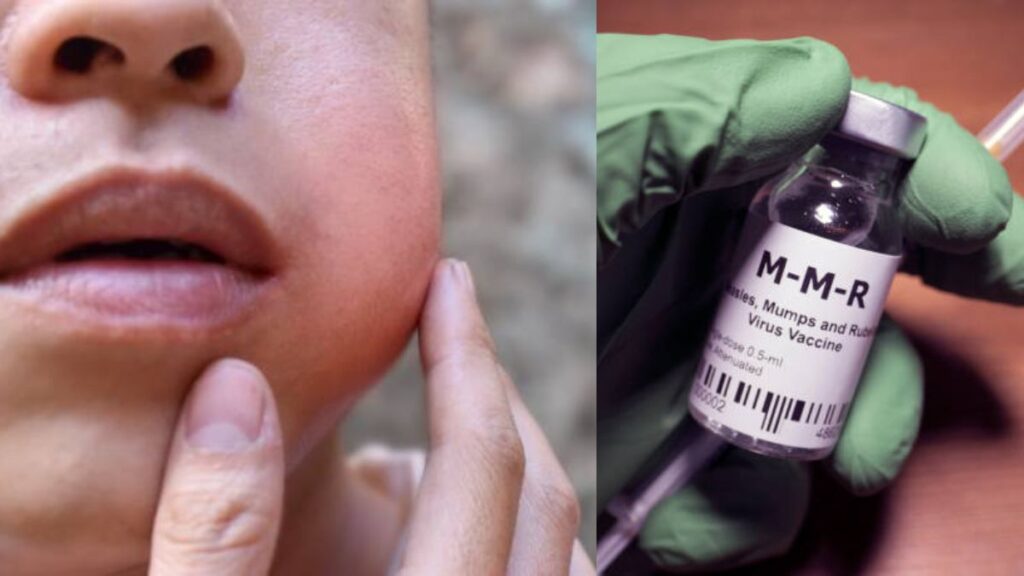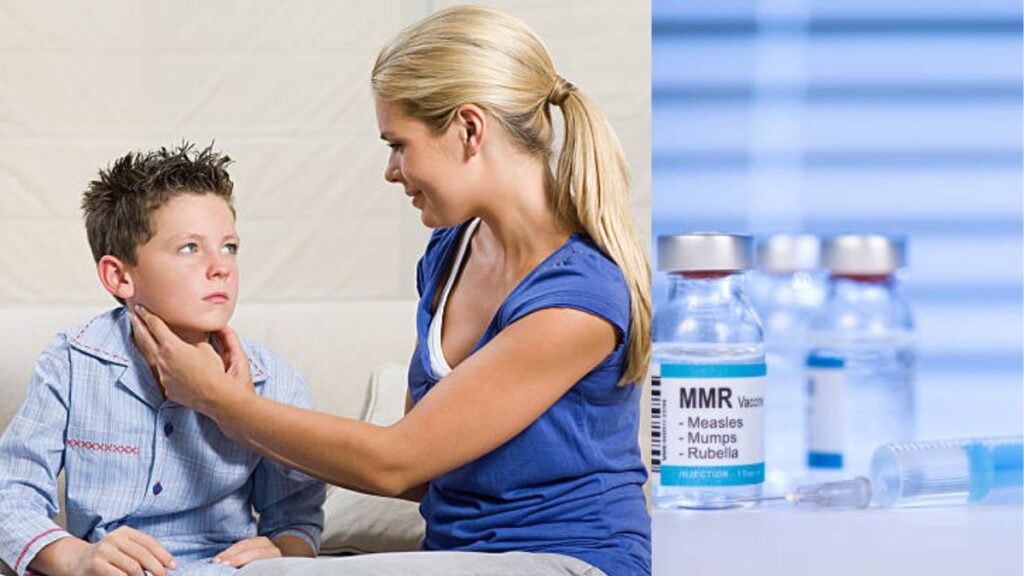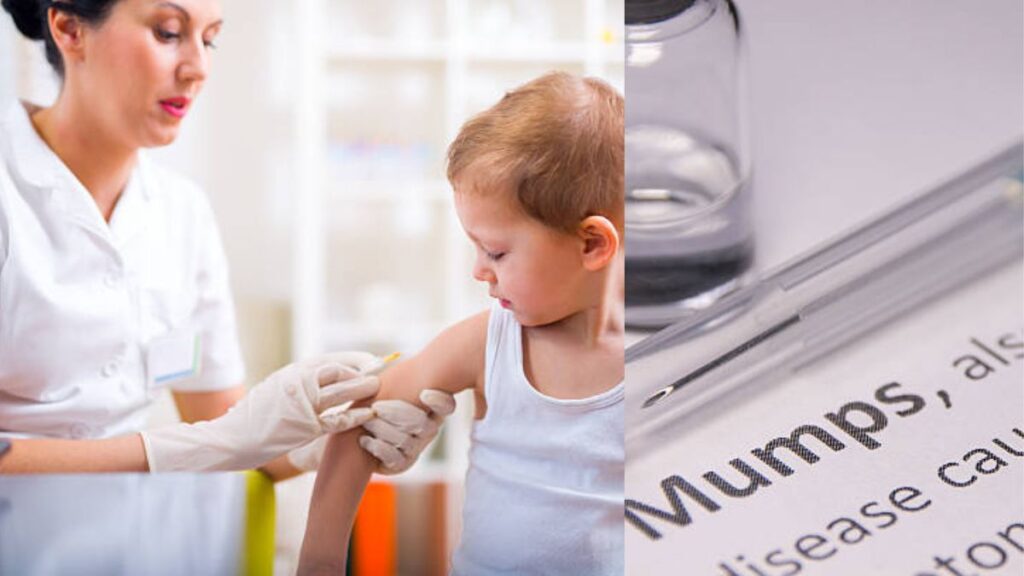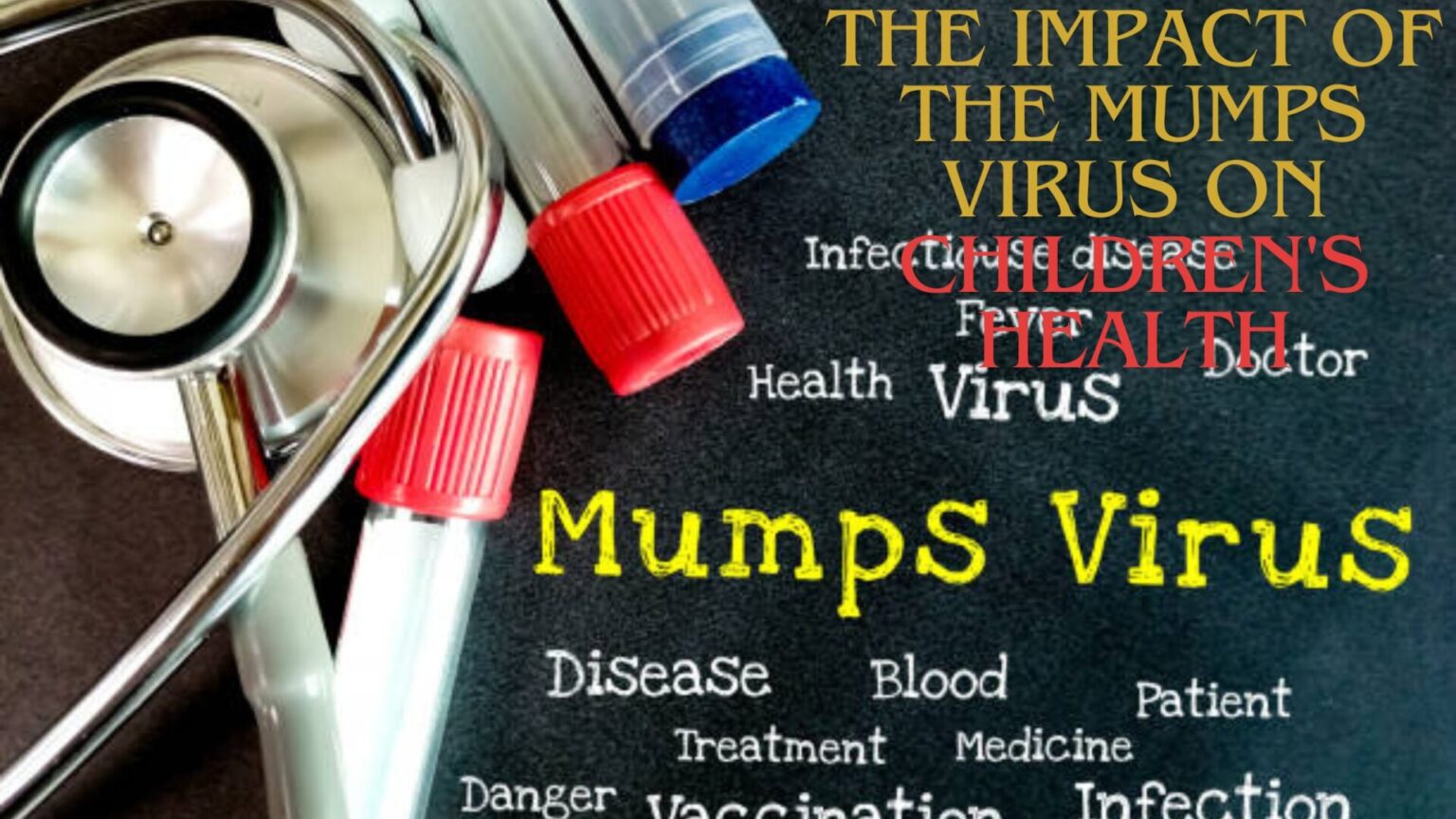Introduction
Guarding Childhood Health: Exploring the Impact of the Mumps Virus on Children’s Health

Children’s health is very important for the future. A viral infection called the mumps virus can make children very sick. This article will talk about how the mumps virus affects children’s health, what the symptoms are, what problems it can cause, and how to prevent children from getting it.
The mumps virus can make children very sick. It can cause fever, headache, muscle aches, and swelling in the glands around the neck and jaw. Sometimes, the mumps virus can also cause more serious problems, like swelling in the brain or testicles.
There is no cure for the mumps virus, but there is a vaccine that can prevent it. The mumps vaccine is very effective, and it is recommended for all children.
In addition to the vaccine, there are other things that parents can do to help prevent their children from getting the mumps virus. These include:
– Washing hands frequently with soap and water
– Avoiding contact with people who are sick with the mumps virus
– Covering coughs and sneezes with a tissue
– Staying home from school or work if you are sick with the mumps virus
By following these tips, parents can help protect their children from the mumps virus and its serious complications.
The Impact of the Mumps Virus on Children’s Health

Mumps: A Childhood Infection
Mumps is a contagious disease caused by a virus. It mostly affects children and teenagers.
Symptoms
The most common symptom of mumps is swollen salivary glands. These are glands that make saliva. They are located on both sides of your face, just below your ears. When they swell up, it can be painful and make it hard to eat, drink, or swallow.
Other symptoms of mumps can include:
– Fever
– Headache
– Muscle aches
– Tiredness
– Loss of appetite
Complications
Most cases of mumps are mild, but sometimes it can lead to serious problems. These include:
– Meningitis (swelling of the brain and spinal cord)
– Encephalitis (swelling of the brain)
– Orchitis (swelling of the testicles in boys)
– Oophoritis (swelling of the ovaries in girls)
– Deafness
Social and Emotional Impact
Mumps can also have a social and emotional impact on children. They may need to be isolated from others to prevent the spread of the virus. This can make them feel lonely and isolated. They may also feel embarrassed or ashamed because mumps is a vaccine-preventable disease.
Economic Burden
Mumps can also be expensive to treat. The cost of doctor visits, medications, and tests can add up quickly. In severe cases, hospitalization may be necessary, which can add even more to the cost.
Prevention
The best way to prevent mumps is to get vaccinated. The mumps vaccine is part of the MMR vaccine, which also protects against measles and rubella. The MMR vaccine is safe and effective. It is recommended for all children starting at 12 months of age..
Mumps: Long-Term Effects and Complications
Mumps is a childhood disease that can cause serious problems later in life. These problems are more likely to happen if the mumps infection is severe or if other issues develop.
1. Hearing Loss
Mumps can damage the nerves in the inner ear, leading to hearing loss. This hearing loss can be temporary or permanent.
2. Orchitis
Orchitis is a condition where the testicles become swollen and inflamed. This can happen in teenage and adult males who get mumps. Orchitis usually goes away after a few weeks, but it can sometimes cause long-term problems like shrinking of the testicles and infertility.
3. Meningitis and Encephalitis
Mumps can cause swelling of the brain and the membranes that cover it. This can lead to meningitis or encephalitis. Meningitis usually goes away without causing any long-term problems. But encephalitis can cause permanent brain damage.
4. Pancreatitis
Pancreatitis is a condition where the pancreas becomes inflamed. This can happen in rare cases of mumps. Pancreatitis can cause belly pain, nausea, vomiting, and digestive problems. Acute pancreatitis usually goes away with treatment, but chronic pancreatitis can lead to long-term problems like diabetes and malabsorption syndromes.
5. Female Reproductive Health
Mumps can affect female reproductive health, but it’s less common in males. The ovaries can become inflamed, which can cause pelvic pain and irregular menstrual cycles. Most cases of mumps-related oophoritis resolve without long-term consequences, but severe or recurrent inflammation may impact fertility and reproductive outcomes.
It’s important to know about the possible long-term effects of mumps so you can take steps to prevent them. Getting vaccinated against mumps is the best way to protect yourself from this infection and its complications.
What is the Importance of Vaccination and Other Preventive Measures?
Vaccination is very important for your health and the health of others.** It’s one of the best ways to stay healthy and avoid getting sick.

Vaccines help our bodies fight off specific diseases. They do this without making us sick. When we get vaccinated, our bodies build immunity to those diseases. So, we’re less likely to get sick if we come into contact with them.
Vaccines have stopped or controlled many diseases around the world, like smallpox, polio, and measles.
They also protect people who can’t get vaccinated, like babies, older people, or people with weak immune systems.
Vaccination:
– Prevents serious problems and deaths from diseases that can be prevented by vaccines.
– Saves money on healthcare and lost productivity.
In a world where diseases can easily spread across borders, vaccination is crucial for global health. It helps stop outbreaks and prevents new epidemics and pandemics.
Vaccination programs depend on people trusting that vaccines are safe and effective. Keeping high vaccination rates and addressing vaccine hesitancy are essential to stop vaccine-preventable diseases from coming back.
Vaccination is a vital part of public health. It protects us from diseases, saves lives, and makes our overall health and well-being better.
Strategies for Prevention
1. Vaccination:
– Getting vaccinated is the best way to prevent mumps from spreading.
– The MMR vaccine protects kids from mumps, measles, and rubella.
– It’s important to follow the recommended vaccination schedule to build immunity and reduce mumps cases in communities.
2. Good Hygiene:
– Washing hands often with soap and water can help stop the spread of the mumps virus.
– Teach kids to cover their mouth and nose when they cough or sneeze to prevent the virus from spreading.
3. Isolation and Quarantine:
– If there’s a mumps outbreak, it’s important to quickly find and isolate people who have the virus to stop it from spreading.
– People who might have mumps should stay away from others, especially in crowded places.
4. Education Campaigns:
– Raising awareness about the importance of vaccination and the signs and symptoms of mumps can help parents, caregivers, and healthcare professionals take action to prevent the disease.
– Education campaigns can help clear up any confusion or wrong ideas about vaccines and encourage more people to get vaccinated.
5. Vaccination Records:
– Keeping track of children’s vaccination history helps make sure they get their vaccines on time.
– Healthcare providers play a big role in keeping these records up to date to support public health efforts.
Conclusion
To protect children’s health, we need to do several things. We need to be aware of diseases like the mumps virus, make sure children are vaccinated, and teach them good hygiene habits. By doing these things, we can create safer environments for children to grow up in. Let’s work together to keep our children healthy and free from preventable diseases like mumps.






